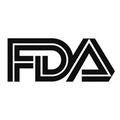FDA Grants Priority Review to Vicineum for High-Risk, BCG-Unresponsive NMIBC
The FDA has accepted a Biologic License Application for Vicineum as a treatment option for patients with high-risk, Bacillus Calmette-Guerin-unresponsive non–muscle invasive bladder cancer, and granted it Priority Review,.

The FDA has accepted a Biologic License Application for Vicineum as a treatment option for patients with high-risk, Bacillus Calmette-Guerin (BCG)-unresponsive non–muscle invasive bladder cancer (NMIBC), and granted it Priority Review, according to a press release issued by the drug developer, Sesen Bio.1
No meeting of the advisory committee is planned to make a decision on the FDA approval of Vicineum for the treatment of high-risk, BCG-unresponsive NMIBC. The Prescription Drug User Fee target action date has been set as August 18, 2021.
“We have been meeting with the FDA regularly for the past 2 years on the application for Vicineum," said Thomas Cannell, president, and CEO, Sesen Bio, in a statement. "We understand the FDA’s position and guidance very clearly and have found the review process to be collaborative and engaging. With these critical FDA decisions, we have reached an inflection point for the company. In addition to a clear regulatory path forward, we have continued to strengthen our balance sheet in preparation for the potential launch of a product we believe represents a significant advancement over available therapies.”
Data for Vicineum were recently presented during the 2020 American Urological Association (AUA) Annual Meeting. In a phase 3 single-arm, multicenter registrational trial (NCT02449239), the agent appeared well tolerated in patients with high-risk, BCG-unresponsive NMIBC and demonstrated meaningful anti-tumor activity. The study results also suggested that Vicineum may be able to prevent patients from requiring radical cystectomy or delay the need for surgery.2
Eighty-nine patients were evaluated on treatment with Vicineum, which was instilled for 2 hours twice weekly for 6 weeks, then weekly for 6 weeks during induction therapy. After induction therapy, patients who remained disease free for 3 months received maintenance therapy every 2 weeks for up to 2 years. Response assessment was conducted every 13 weeks and these responses were determined by negative cytology and normal cystoscopy or absence of high-grade disease on biopsy.
As of the data cutoff date of May 29, 2019, the evaluable patients with carcinoma in situ (CIS) had a 3-month complete response rate of 40%. The median duration of response observed was 9.4 months (95% CI, 5.1 to not evaluable [NE]). Among the patients who responded to Vicineum, 52% remained disease free for 12 months after beginning treatment.
It was noted during the AUA presentation that 38 patients had non–muscle invasive papillary urothelial carcinoma, and of those patients, the recurrence-free rate was 71% at 3 months, 58% at 6 months, 50% at 12 months, and 37% at 24 months. These patients had a median time to recurrence of 13.2 months (95% CI, 5.6-NE). Those who responded at 3 months were recurrence free for 34.0 months compared with non-responders who were recurrence free for 20.7 months (P ≤ .001). The overall rate of recurrence among 3-month responders was 10% versus 32% for non-responders.
Further, preliminary results showed a 2-year overall survival rate of 96% (95% CI, 92%-100%).
The adverse events (AEs) observed with Vicineum in the study were predominantly grades 1 and 2, and the frequency of AEs was similar across the various age groups explored. There were 4 treatment-related severe AEs reported in 3 patients. The severe events included grade 4 cholestatic hepatitis, grade 5 renal failure, grade 3 acute kidney injury, and grade 2 pyrexia. There was a 3% rate of treatment discontinuation related to AEs in the study.
Patients were eligible to enroll in the study given they had histologically confirmed NMIBC, CIS with or without papillary disease, any grade T1 papillary disease, or high-grade Ta papillary disease diagnosed through biopsy within 8 weeks of the initial dose of Vicineum. Patients were required to have received adequate bacillus Calmette-Guérin (BCG) treatment—defined as at least 2 courses, be refractory to or have relapsed following adequate BCG treatment, have a Karnofsky performance status ≥ 60, and adequate organ function.
Vicineum is a recombinant fusion protein that is linked to a variant that helps to mediate tumor cell death by blocking protein synthesis. The phase 3 registrational VISTA study (NCT02449239) of Vicinium in patients with high-risk, BCG-unresponsive NMIBC is currently in the follow-up stage.1
References:
1. Sesen Bio Announces FDA Acceptance and Priority Review of its Biologics License Application for Vicineum™. News release. Sesen Bio. February 16, 2021. Accessed February 17, 2021. https://bit.ly/37pBstN
2. Shore N, O’Donnell M, Keane T, et al. PD03-02 Phase 3 results of Vicinium in bcg-unresponsive non-muscle invasive bladder cancer. J Urol. 2020; 203(suppl 4). doi: 10.1097/JU.0000000000000823.02